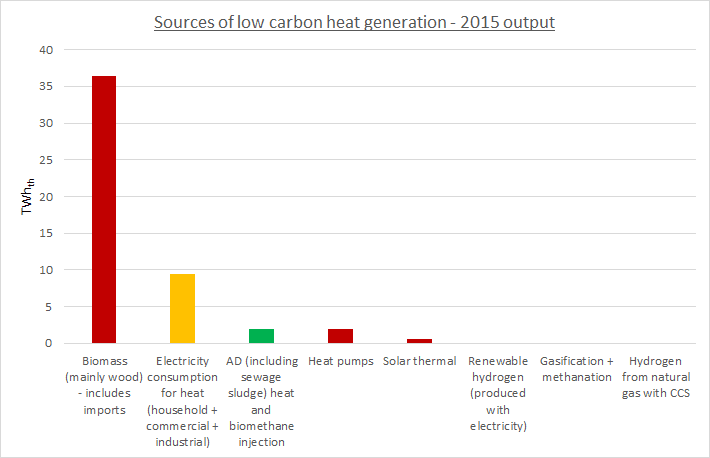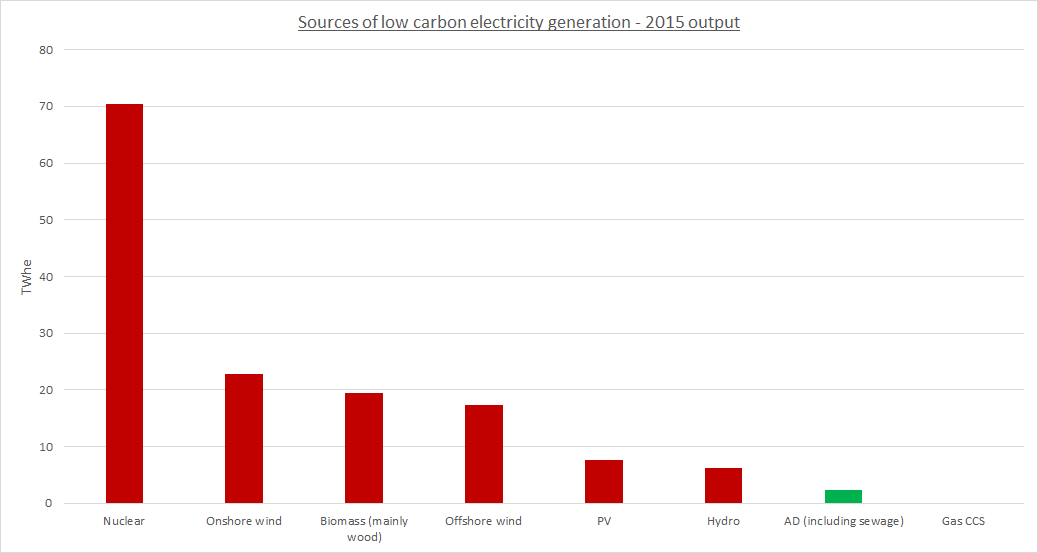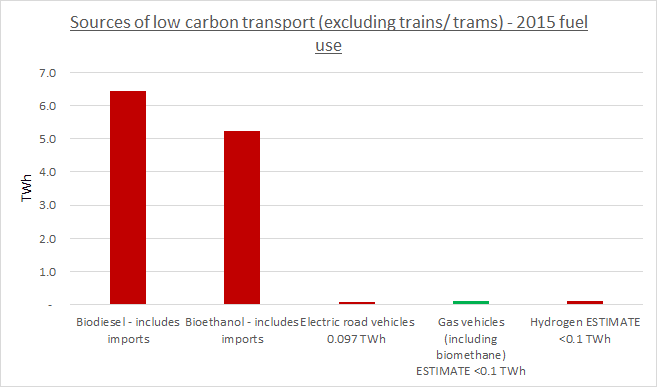On 15 March 2024, ADBA submitted its formal response to the Scottish Government's consultation on…
AD delivering on three fronts – low-carbon heat, electricity and transport
The Department for Business, Energy & Industrial Strategy (BEIS) publish an annual dataset comparing the output of different sources of renewable energy in the UK. To view the full data set, click here.
Though 2016 data is not yet available (due to be published at the end of July), a quick look at the 2015 data shows anaerobic digestion (AD) as a technology climbing up the ladder in terms of market share, increasing its contribution to low-carbon heat, electricity and transport.
Amongst the renewables, AD fares very well on the heat generation front, sitting in an impressive third place. AD generated over 2 TWh of heat and biomethane (injected into the gas grid) in 2015. This was 50% higher than in 2014.
For insight into the latest innovations of heat use in the industry, and the future of AD as a whole, don’t miss out on the upcoming UK AD & Biogas and World Biogas Expo 2017 in Birmingham. To register, click here. There will be a session on “Finding practical usage of heat” at 12.00 on 6th July in the Green Seminar Theatre.
In terms of electricity generation, AD ranks seventh. In 2015, the industry generated 2.3 TWh of electricity, according to DUKES. To expand the image below, please click on it.
ADBA’s latest figures show that energy generation from AD continued to grow impressively in 2016. In 2016, AD produced approximately 10.7 TWh of biogas, 20% growth on 2015. You can see my full blog by clicking here.
AD also offers the opportunity for generators to upgrade their biogas to biomethane and use it as a transport fuel in buses and heavy vehicles. Though there are currently very few gas vehicles (including biomethane) in comparison to those operating on other low carbon fuels such as biodiesel and bioethanol, there is huge opportunity for the biomethane transport fuel sector to grow.
Nitrogen dioxide (N20) pollution is the primary cause of poor air quality, and compared to diesel, biomethane offers lower N20 and particulate matter levels, and also reduces CO2 emissions, critical for decarbonising transport.
If you are interested in the exciting future of biomethane as a low-carbon transport fuel, at the UK AD & Biogas and World Biogas Expo 2017 there will be at least two focused sessions on biomethane as a transport fuel:
- On 5th July at 15.00 in the Purple Seminar Theatre, there will be a session titled “The role of biomethane in decarbonising transport”, chaired by ADBA’s Thom Koller. The session will discuss using biomethane in vehicles to make progress in decarbonising heavy goods vehicles, buses and tractors by 2030.
- On 6th July at 11.00 in the same room, there will be a session on the latest HGVs available that use biomethane as a fuel and what vehicles we can expect to see in the fleets of tomorrow.
If you have any questions about the industry, please feel free to send me an e-mail (emiliano.lewis@adbioresources.org).







